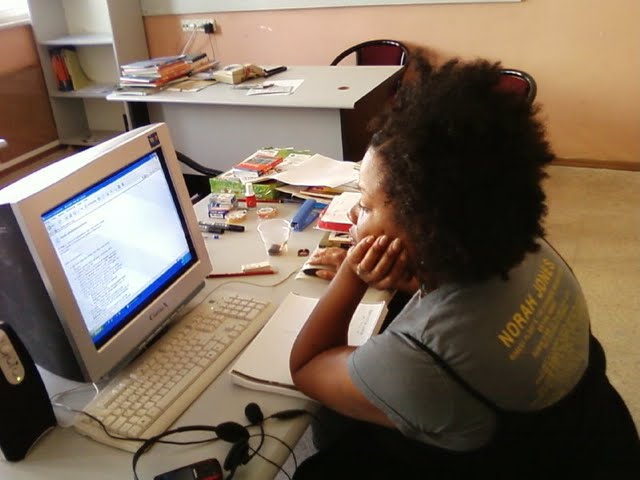
I've faced several challenges while teaching speaking and pronunciation in Turkey. My first challenge was trying to overcome my South Carolina accent. The first class I taught at Selcuk University was for the Montana State dual degree program. My students were all Mechanical Engineering, or Chemical Engineering students who had been selected to participate in a program that would yield two degrees for them, one from Selcuk and one from Montana State University. Several times during class, after asking students to repeat after me, I realized that I was going to send them to Montana with a unique mix of a Turkish and Southern accent! When I had the opportunity to meet the teachers who would carry the students further toward proficiency, I warned them that the students were coming to them with accents scented with the aromas of their native language, slightly sweetened by the molasses of my not-so-undetectable Southern twang. Fortunately, these students fared well and I am proud to say that most of them have passed the TOEFL or have reached the level of proficiency necessary to be fully admitted into the program.
While dealing with accents, I have noticed that many of the Turkish people I meet have difficulty pronouncing the wider mouth sounds of English like the "ae" in cat and bat, and the "ow" in cow and mouth. The reason for this is that these sounds are not a part of the Turkish language. Turkish is a coy language of soft sounds. I've even had some shy students hold paper or a book up to veil their mouths when I requested from them a particular wide mouthed American English sound or word. Turkish is a pouty, closed mouthed language full of fluid musical sounds. The sound of Turkish is like the susurrus of diaphanous, hand-embroidered curtains which carry the scented smoke of rose and mint from the nargile water pipe to the wind. The sounds of Turkish are not harsh, even the gruff "g" has a softer side. On one hand, it has the familiar aggressive tone we recognize in the words "gas" and "grandiose" but its softer side is the chivalrous soft "g" which serves as a safe passage for a preceding vowel, allowing it to elongate and carry itself across a word as in Ağustos; pronounced "ah OO stōs". For this reason, even an argument in the street, sounds like poetry.
This week, I asked my students to recite poetry that we might work on the rhythm of their speaking. I gave them four very different poems to choose from; Where the Sidewalk Ends by Shel Silverstein, Nightclub by Billy Collins, Ode to a Lemon by Pablo Neruda and Dream Variations by Langston Hughes. As I listened to each student recite the poem of his (this year my Montana class is all young men) choosing, I found it difficult to not focus specifically on the words of Hughes because I have known that poem by heart since I was ten years old. Focusing on this poem made me reflect on the universality of Blackness. Everyone, regardless of race, will be Black at one time or another if given the opportunity to step away from their familiar context. If one has blue eyes in a culture where blue eyes are considered evil, then that person will experience the Blackness of which Hughes is referring. At some time, one's gender or proclivities may render them Black. For others, it may be their religion or ethnicity. As I listened to student after student, focusing on their rhythm and pronunciation, I couldn't fight the hope that the message would speak to them, on a conscious or unconscious level.
Most of the students who chose to recite Dream Variations, that day, had the characteristic problem with the sound "ae" so instead of saying "Black like me" it sounded more like "Blek like me." Although I tried to be professional and lead them to the proper pronunciation, I couldn't help thinking that the pronunciation was less important than the message. I will, of course, continue teaching them how to differentiate between the "ae" in bat and the short "e" sound in bet, but more importantly, I will focus on whether or not they are conscious of the greater meaning. Pronunciation is important but it is more important to intimately know what you are saying. More than anything, I want my students to meditate on how it feels to "fling" themselves wide against a background that may contrast to their religious, ethnic or cultural spectrum and know what it feels like to rest comfortably in the people that they are becoming.














